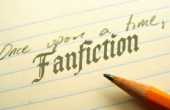arcade13
Contributing writer for The Artifice.
Junior Contributor II
- Lurker
- ?
- Articles
1 - Featured
0 - Comments
4
- Ext. Comments
4 - Processed
0 - Revisions
0
- Topics
1 - Topics Taken
1 - Notes
2
- Topics Proc.
0 - Topics Rev.
0
- Points
142 - Rank
X - Score
65
Latest Articles
Latest Topics
literature Write this topicChris Hadfield's Autobiography and what living in space can teach us about living on earth.I'd like to explore the various obvious and also subtle elements of Chris Hadfield's autobiography "An Astronauts Guide to Life on Earth." Since the book is obviously from the point of view of an astronaut, I would like to explore the themes he mentions from the POV of a regular person and what his statements can mean for a life that isn't destined for the stars.
|
Latest Comments
| Werewolves in Literature: 5 Titles that Embrace the Transformation | |
Interesting article, however, I feel that you are missing a large part of Tolkien’s motivations for his depictions of Moria, Mordor and the Orcs. Tolkien was an avid lover of nature and grew up in a rural area of England that he adored. He is frequently quoted as being distressed by the rise of industrialisation in the surrounding area, particular those advances which took out swathes of his local wildlife. I do agree that the military and WW1 played a huge role in his formation on the enemy but I think there are more components to his depictions then what was outlined above. Many attributes of the enemy people and lands come from his disgruntled outlook on this industrialising situation, which was further developed from his experiences in the great war. | World War I and The Lord of the Rings: The Trenches of Moria |
I’ve always felt that the lack of overt religiousness was in itself a commentary on religion for these books. It was nice to read this article as it cemented some of my thoughts on the matter. | Harry Potter: Faith and Superstition |
I’ve always found LOTR interesting because I’ve found that in many books (especially since the release of the movies), it is almost stereotypical to chose the least likely person to be the hero. There is now a fascination that comes from having the predictable leader shown as the weakest and having the weakest team member rise to a challenge. I think of books like Harry Potter, The Hunger Games and Game of Thrones, all of which tend to ridicule and dehumanise those who are obvious picks for heroes. I enjoy Tolkien’s works because it is a genuine story of the weakest gaining emotional and physical strength. Sometimes it feels like, these days, people try too hard to make every situation the opposite so that it feels fresh and interesting. | Hobbits: Tolkien's Unlikely Heroes |

I have never heard of any of these so this was a great read!